Aid environment
From the perspective of the broader aid ecosystem
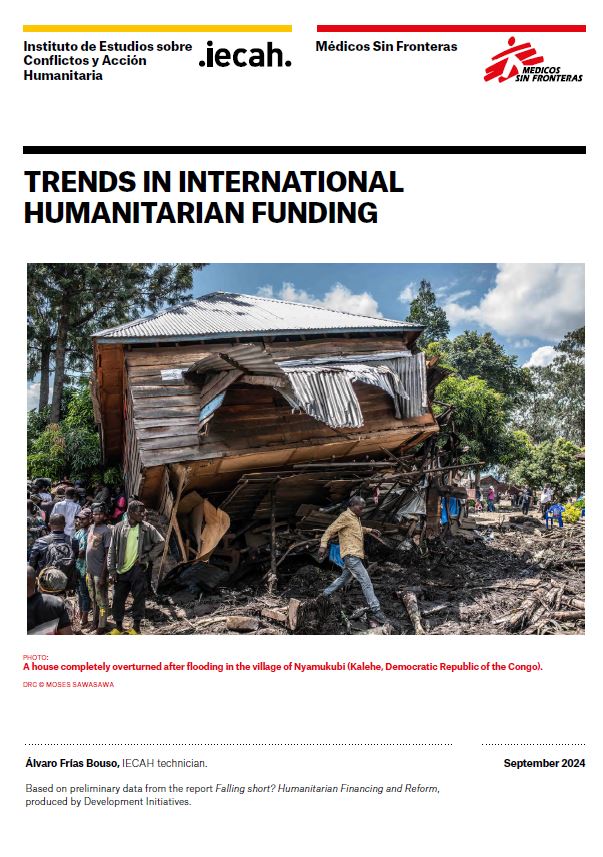
Trends in Global Humanitarian Financing
Despite the increase in funding needs, funds raised for the 45 UN appeals have stagnated compared to 2022, resulting in the largest shortfall since the beginning of the century, with only 45% of funding requirements met.
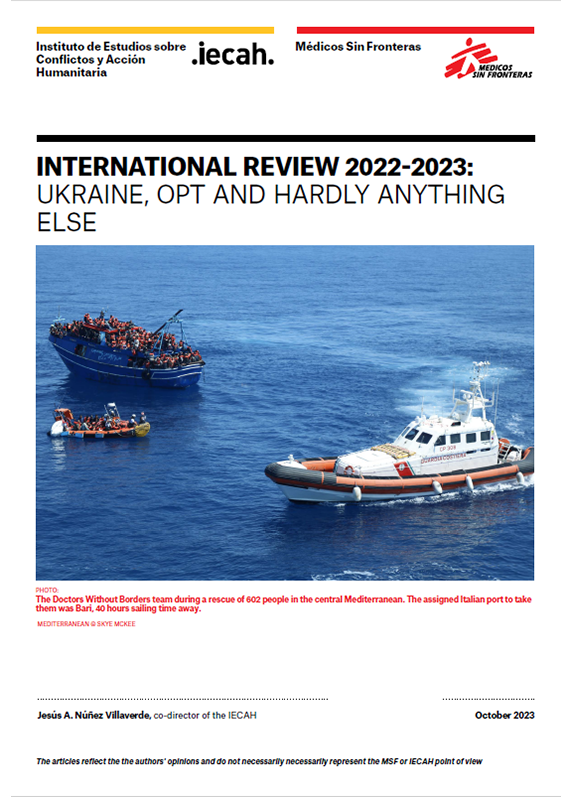
International review 2022-2023
By definition, any review involves looking back to try and identify what has characterised the period under review. More than a chronology of the most significant events, this report serves to try to draw some conclusions that allow us to better understand what has happened and, in the best of cases, to glimpse where efforts should be directed.
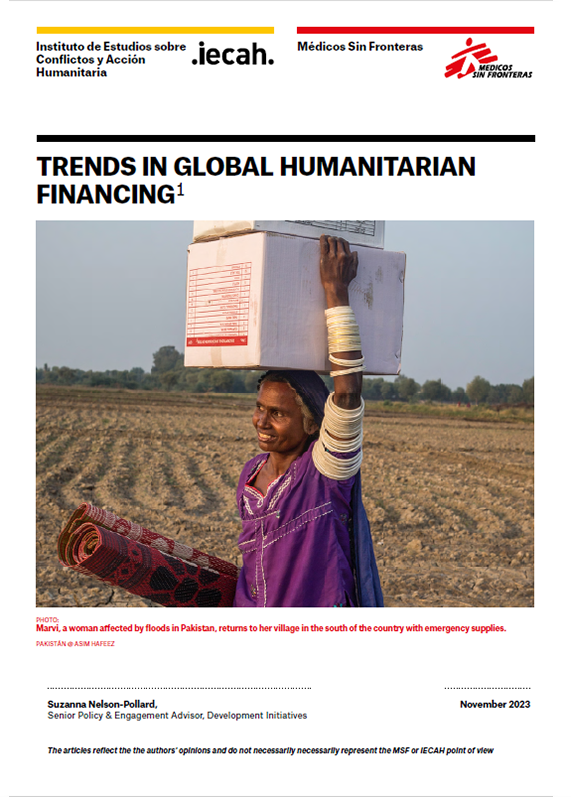
Trends in Global Humanitarian Financing
In 2022, the demand for humanitarian assistance grew larger than ever. There were a growing number of complex, long-term crises, driven by system-wide shocks, as well as new and escalating crises, and worsening crises.
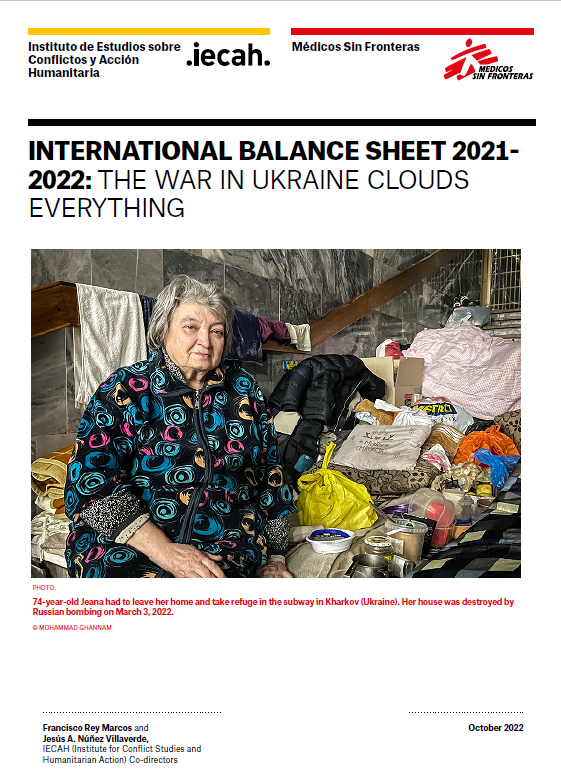
International balance sheet 2021 – 2022
First it was the COVID-19 global pandemic, and then the impact of the new fall of Afghanistan into the hands of the Taliban, now it is the war in Ukraine that has captured the world’s attention.
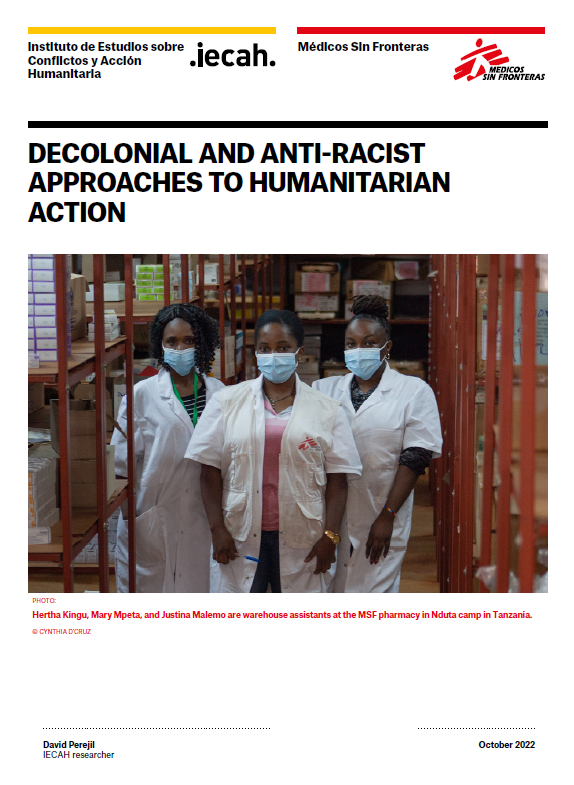
Decolonial and anti-racist approaches to humanitarian action
After decades of post- and decolonial studies, their critiques of the international system have gained weight in recent years.
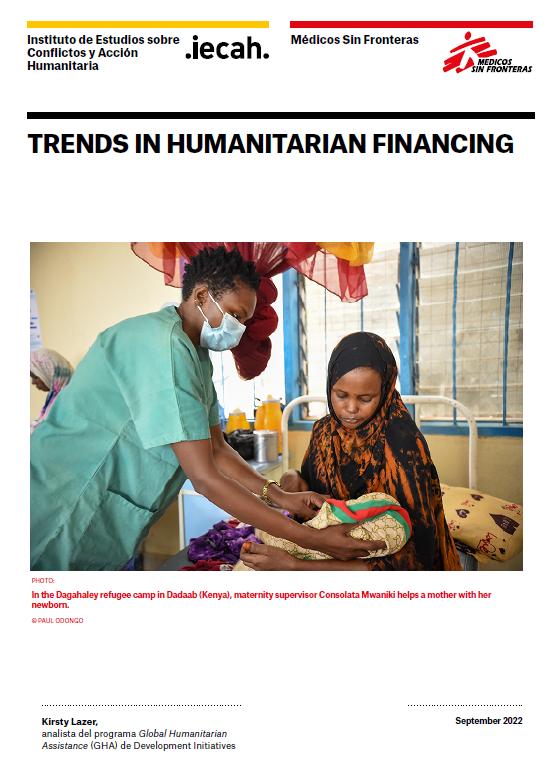
Trends in Humanitarian Financing
Humanitarian financing in the context of rising global need. In 2021, the Covid-19 pandemic continued to overlay other preexisting and emerging crisis risks, driving need and complicating response. Following the rapid rise in demand for humanitarian assistance in 2020, needs remained at historically high levels in 2021.
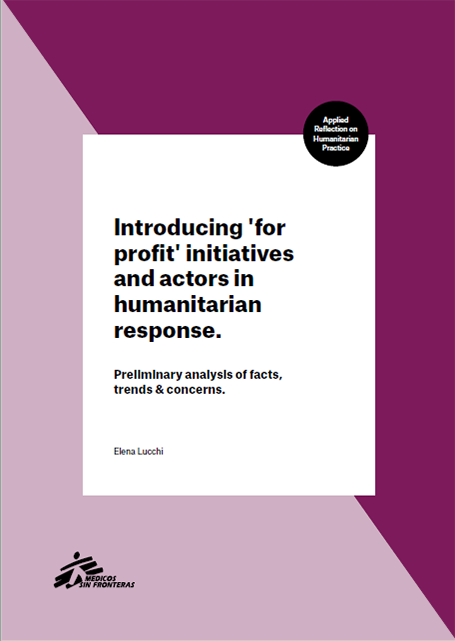
Introducing ‘for profit’ initiatives and actors in humanitarian response
The private sector is increasingly involved in multiple aspects of humanitarian action, and not only as financial contributor. This research maps practices, identifies likely future scenarios regarding the privatisation of the response in emergency contexts and flags concerns regarding practices and trends.

Emergency gap: Insecurity – always an insurmountable obstacle?
This paper offers a reflection on the subject of risk acceptance, and some of the underlying factors that –apart from the actual security threat– influence security decision-making in the humanitarian sector.
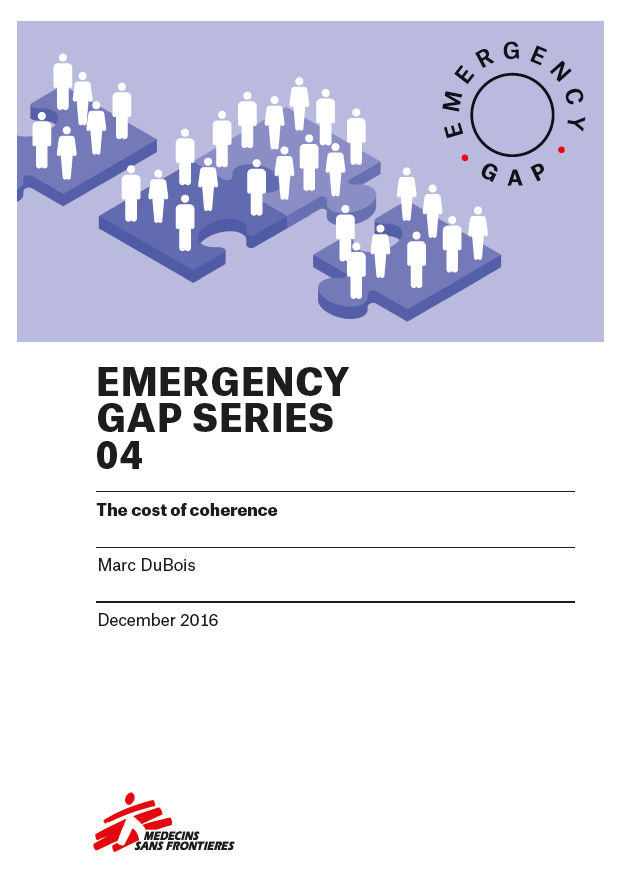
Emergency gap: The cost of coherence
The new WHS paradigm offers a vision for humanitarian action that takes coherence too far, effectively merging humanitarianism into the overarching aid project of the SDGs. The aid sector must work to strengthen complementarity across responders, while preserving the critical distinctions between humanitarian and other forms of action.

Looking back at 2016
Every year has its share of tragic moments. Every year we deplore that humanity has again been scarred by terrible crises that affect the lives of countless people all over the planet. Yet this year has a different taste.
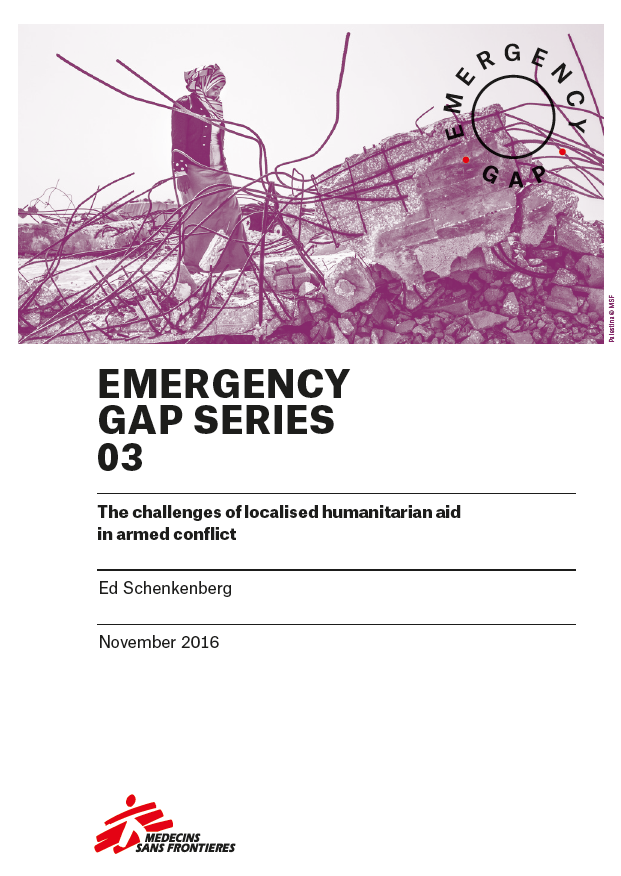
The challenges of localised aid in conflict
Overseas Development Institute (ODI) & Active Learning Network for Accountability and Performance in Humanitarian Action (ALNAP), London
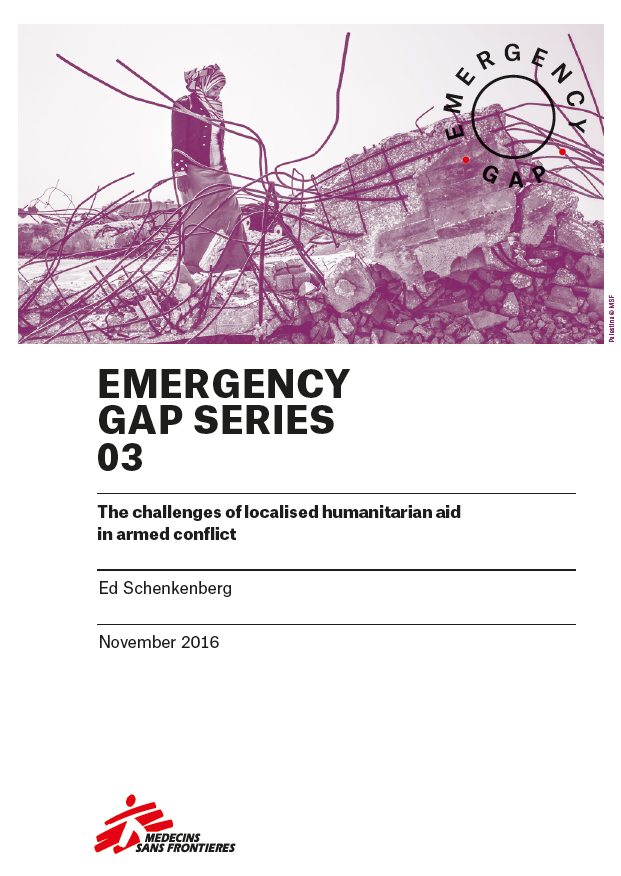
Emergency gap: The challenges of localised humanitarian aid
This paper analyses the role of national and local actors in humanitarian action based on MSF’s experiences in areas within conflict affected countries where the most urgent needs are found.

Niger, Jan 2015 – Aug 2016
This case study of the ‘humanitarian system’s’ response to a conflict driven displacement crisis in the Diffa region of Niger explores if there is an ‘Emergency Gap’. This report concludes that there has been a gap in what could reasonably be expected in terms of effective humanitarian response, and that the reasons for this gap are found in an analysis of the internal dynamics of the system as much as in any external constraints.
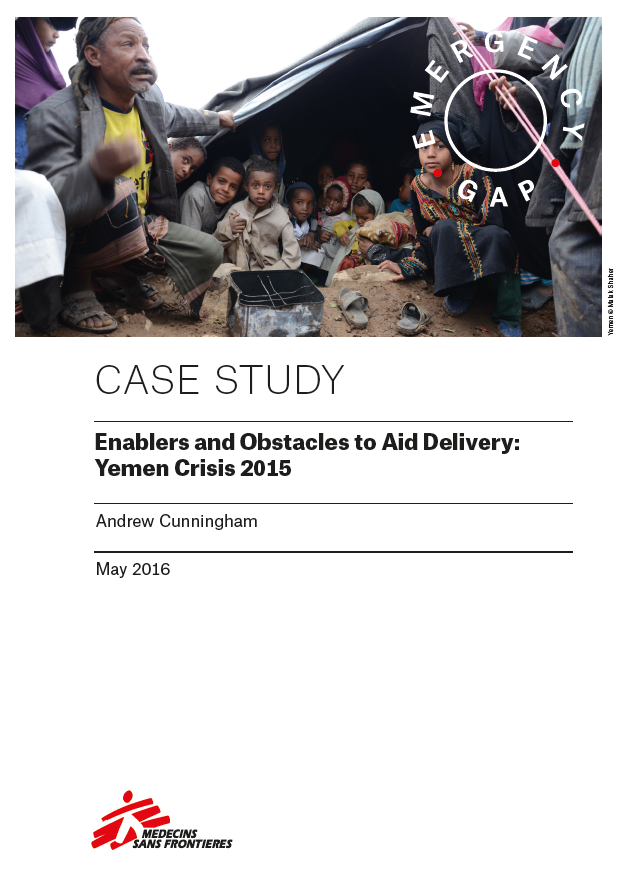
Round Table ‘Insecurity in Yemen, impossible obstacle or surmountable challenge?’
La Casa Encendida Auditorium, Madrid
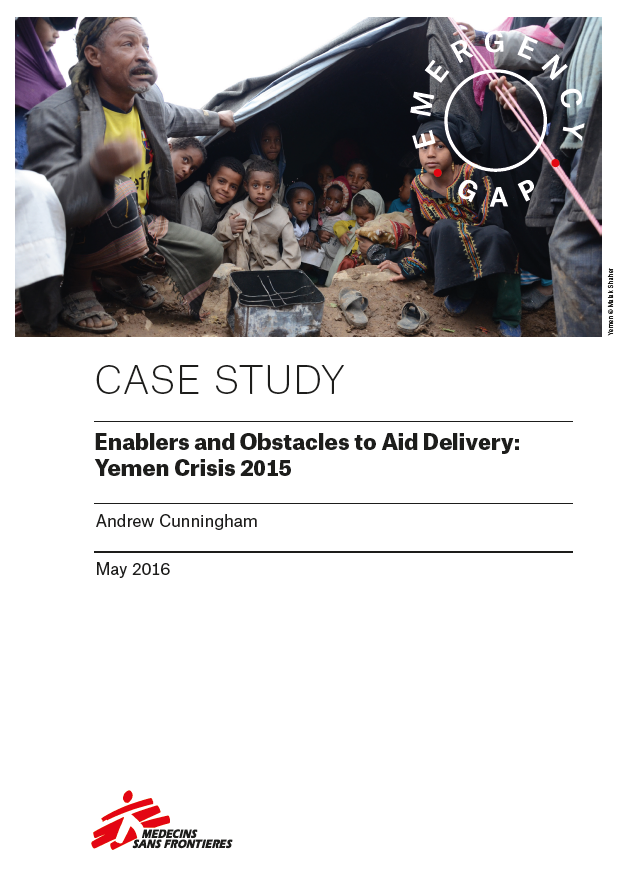
Enablers and Obstacles to Aid Delivery: Yemen Crisis 2015
The humanitarian community has failed to adequately respond to the humanitarian crisis in Yemen. This report examines how humanitarian organisations responded to the crisis in 2015 and analyses the obstacles and enablers to aid delivery. Four themes have been explored in detail: humanitarian leadership; political issues and negotiated access; security management; and resources.
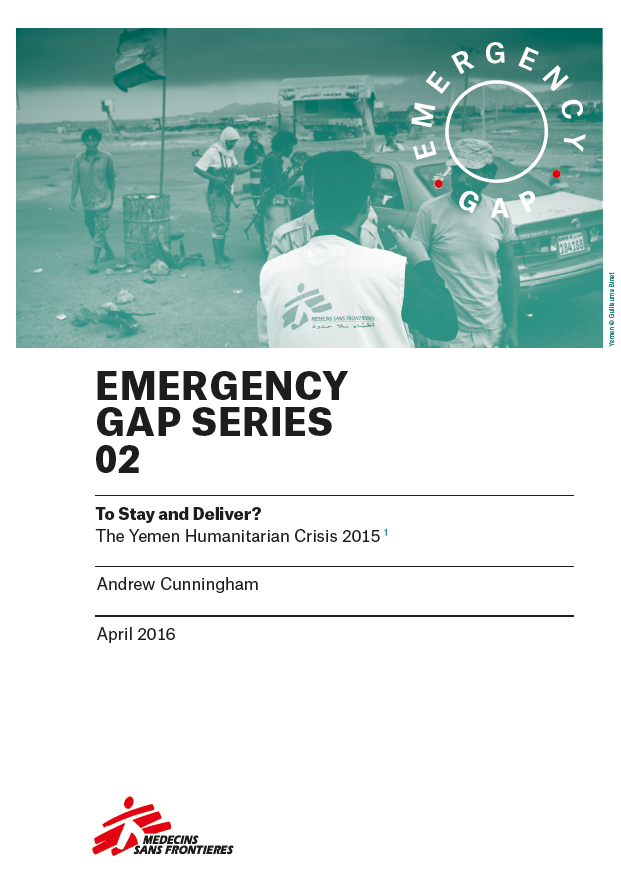
‘Stay and Deliver’ Yemen Report
The role of humanitarian aid is to assist populations in dire need, such as those suffering the consequences of conflict. But the system does not always work. In some recent humanitarian crises the humanitarian system has failed to deliver needed aid. One such failure has been the Yemen response.
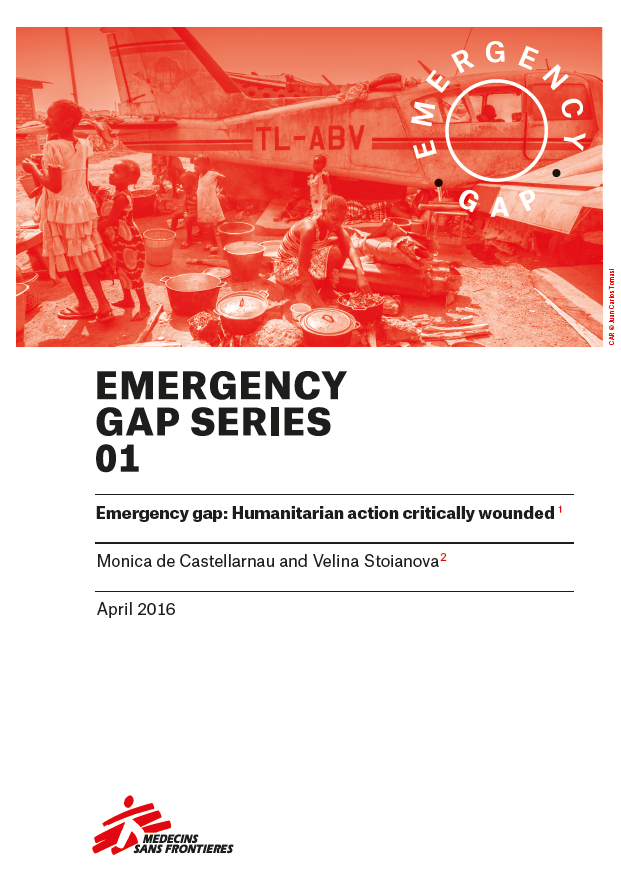
Emergency gap: Humanitarian action critically wounded
This paper offers a reflection on the subject of risk acceptance, and some of the underlying factors that –apart from the actual security threat– influence security decision-making in the humanitarian sector.

Refugee crisis in Europe: the triple failure
Europe had a shocking “rentrée” from the summer holidays this September. As government officials returned to their suits and offices and kids throughout the continent returned to school, the Greek islands had become a highway for people fleeing war. In a matter of days the highway extended through to the Balkans on the tracks of a previously less trodden migration path into the European heartland. In no time thousands of people amassed in Hungary’s borders as this government attempted to halt their advance.

Yemen: humanitarian action on stand-by
Yemen is a country with an exceedingly rich history. Its rolling mountains and rugged desert terrain lie where one of our oldest civilisations once stood, encompassing an intricate cultural and tribal past. The Prophet Mohammed once said of Yemen that it would be the last refuge for his army, should they need to escape and seek safety in the face of danger.
